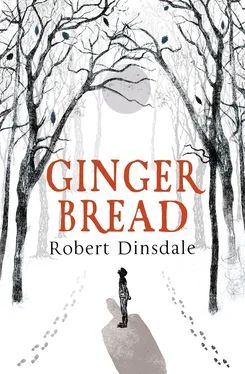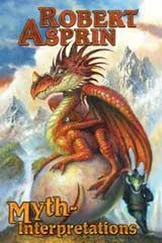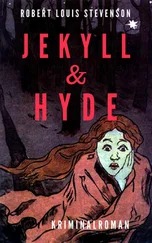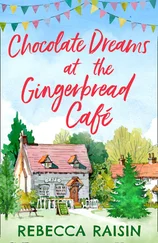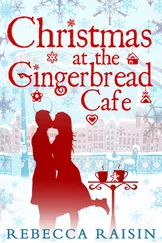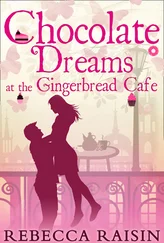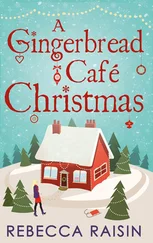About the Publisher Конец ознакомительного фрагмента. Текст предоставлен ООО «ЛитРес». Прочитайте эту книгу целиком, купив полную легальную версию на ЛитРес. Безопасно оплатить книгу можно банковской картой Visa, MasterCard, Maestro, со счета мобильного телефона, с платежного терминала, в салоне МТС или Связной, через PayPal, WebMoney, Яндекс.Деньги, QIWI Кошелек, бонусными картами или другим удобным Вам способом.
WINTER
When the car comes to a halt, the boy stirs from his slumber. The very first thing he sees is his mama’s face, peering at him through the mirror. She has it angled, so that it doesn’t show the sweeping headlights spreading their colour on the fogged glass, but shows her own features instead. Mama is tall and elegant, with hair at once yellow and grey, and blue eyes just the same as the boy’s. In the thin mirror shard, she traces the dark line under one of those eyes with the tip of a broken fingernail, then spreads it as if she might be able to see more deeply within.
The boy shifts, only to let mama know he is awake. Outside, unseen cars hurtle past.
‘Are we there, mama?’
His mother looks back. She has not been wearing a seatbelt – but, then, the hospital told her she wasn’t to drive the car at all. This, she said as she buckled him in, would have to be their very own secret.
‘Come on, little man. If I remember your Grandfather, he’ll have milk on the stove.’
Mama is first out of the car. Inside, the boy sees her blurred silhouette circle around to help him out. It is not snowing tonight, though mama says it is snowing surely out in the wilds; in the city it is only slush, and that pale snow called sleet. It has fingers of ice and it claws at the boy.
Mama helps him down and crouches to straighten his scarf. Then it is up and over and into the tenement yard. On one side, the road rushes past, with rapids as fearful as any river, while on the other the yard is encased by three sheer walls of brick. Eyes gaze down from every wall, half of them scabbed over by black plastic sheeting, the others alight in a succession of drab oranges and reds.
The tenement is a kind of castle where Grandfather lives. Mama says the boy has been here before, but that was in a time he cannot remember, and might even have been before he was born. Together, they cross the yard, to follow an archway of brick and cement stairs to the levels above. The path goes all the way around the building, like a trail climbing a mountain, and at intervals the boy can peer down to see the car itself dwindling below.
At last, three storeys up, mama stops.
‘Come here,’ she says, and there is something in her voice which makes him cling to her without hesitation.
They are standing before a door of varnished brown, with a threadbare mat on which stand two gleaming ebony boots. The boy is marvelling at these things that seem so old when his mama raps at the door. An interminable time later, the door draws back.
‘ Vika ,’ comes a low, weathered voice.
The boy’s eyes drift up from the boots, up the length of mama’s body, up the doorjamb broken by hinges. In the doorway, hunches his Grandfather. He seems a shrunken thing, though he is taller than mama, and taller still than the boy. On his head there is little hair, only a fringe of white hanging from behind, and his face is dominated by features that seem too large and out-of-place: a nose with a jagged crest; blue eyes shining, but eye sockets deep and dark. He is wearing a flannel nightgown, burgundy, tied up with a black leather belt, and though his eyes dwell first on mama, they drop second to the boy. He shuffles closer to mama’s legs, and it is only then that he realizes that Grandfather’s eyes have dropped further, to the boots on the mat.
‘My jackboots,’ he says. ‘They’re finished. Bring them, would you, boy?’ Grandfather turns to shuffle inside. ‘Oh, Vika …’
‘We’ll talk soon, papa.’
After mama has gone in, the boy picks up the jackboots and follows.
It is a small place, with a narrow hall and a kitchen at the end. Mama and Grandfather are already in that kitchen, with a pan rattling on the stove, but the boy creeps up quietly, stealing a look at the photographs adorning the walls. In them he sees people he does not know: a mama and a papa and a baby girl; banks of men in uniforms wearing jackboots just the same as those in his hands. He stops to scrutinize the grainy images, and sees long shadows cast at the end of the hall: the malformed shapes of his mama and Grandfather waltzing in the small kitchenette.
‘No,’ Grandfather says, the word stressed by the clatter of pans. ‘I won’t hear it, Vika. You were foolish coming here. It’s giving in. It’s weakness . I didn’t bring you up just to let you give in.’
‘It isn’t weakness , papa. It’s cancer.’
On the tolling of that word, the boy appears in the kitchen door. It is a small room, with a stove in its centre and a ragged countertop running around its wall. Pots are piled up haphazardly in a simple tin sink.
Across the stove, Grandfather’s hand trembles as he lifts a pan. His eyes, desolate, fall on the boy. ‘I made you a hot milk,’ he breathes.
But mama puts an arm around him, and ushers him back into the hall. ‘Come on. I’ll show you your new room.’
There are two bedrooms around a turn in the hallway, and a third little corner with a gas fire and a rocking chair for sitting. Mama ushers him to its furthest end, past yet more photographs of times beyond the boy’s memory.
The room at the end is empty but for a bed with two bunks and a chipped wooden horse standing on the window ledge. As they go through the door, his mama reaches for the light – but no bulb buzzes overhead. Still, she coaxes him in. Setting down the bag from her shoulder, she unrolls a simple set of bedclothes.
‘What do you think?’
‘It isn’t the same as at home.’
‘It’s my home. This is where your mama used to sleep.’
Mama goes to lie on the bed. It is a ridiculous thing to think she might once have slept in it, because even the boy can see she is too big.
‘Mama, look.’
Mama sits up, turns back to the pillow at which the boy is pointing. Where she lay her head, the pillow has kept a neat lock of her hair.
‘Oh, mama,’ whispers the boy.
In two simple strides she is across the room, snatching up the wooden horse from the ledge. She gestures the boy over and, torn between his mama and the hair she left behind, it takes a moment before he complies.
‘This,’ says mama, ‘is my little Russian horse.’
The boy takes it. Once it was painted a brilliant white, with ebony points and a tail of real horsehair, plucked – or so the boy imagines – from the mane of some wild forest mare. Now its paint is dirty and in patches bare, its golden halter a murky brown. The chip above the left eye has given the trinket a look of immeasurable sadness, and the red around its open mouth looks bloody, as if the horse might have come alive in the dead of night and made a feast out of the woodlice who carve their empires in the fringes of the room.
‘It was a present from my mama, and now it’s yours.’
‘Mine?’
‘All yours.’
But the boy blurts out, ‘I don’t want it to be mine. It’s yours, mama. You have to look after it.’
The boy grapples to push it back into her hands. Even so, mama’s hands remain closed.
Читать дальше
